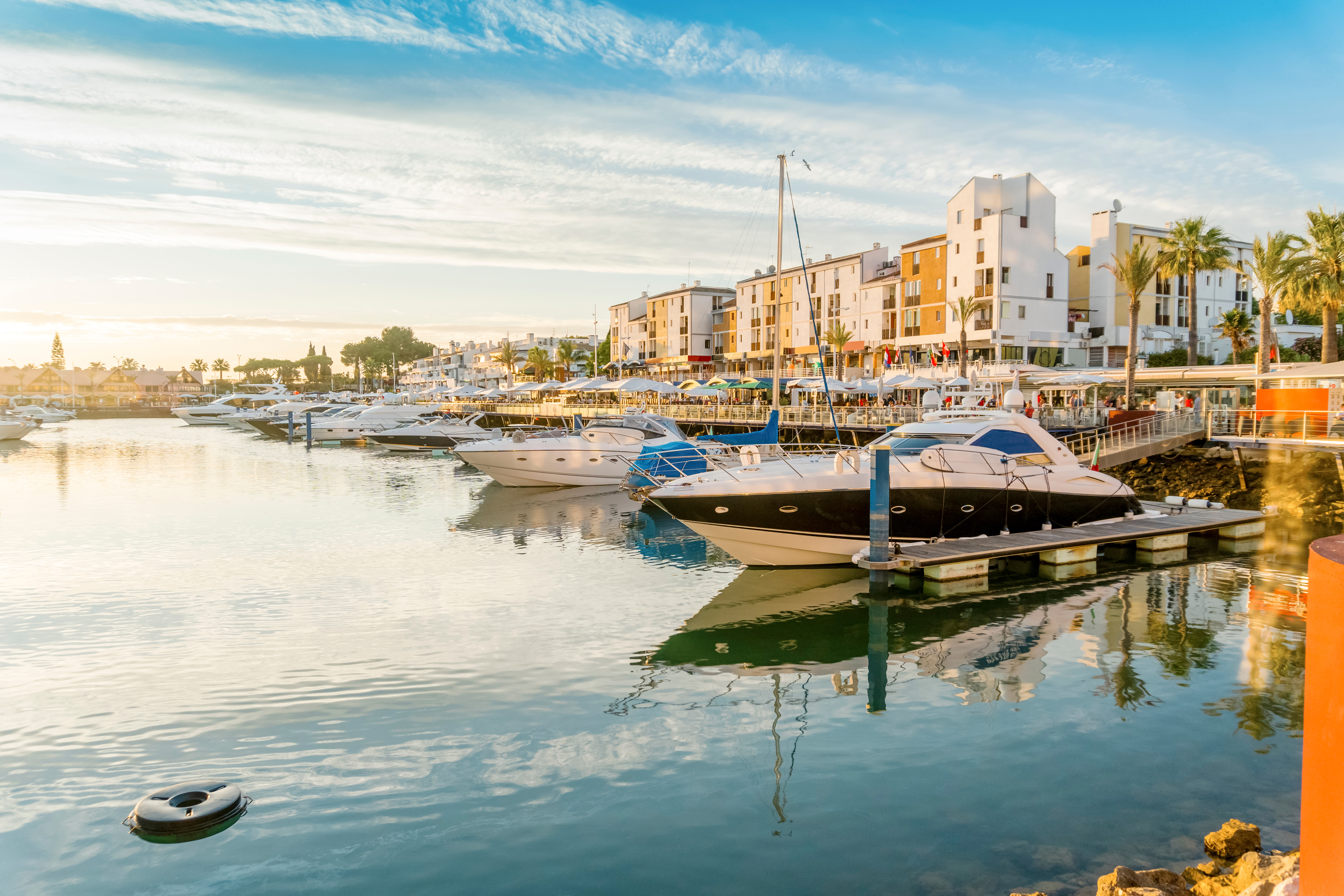Portugal allows immigration based on financial solvency, investment in the country, study, family reunification, starting a business, and employment contracts. Foreigners who wish to move to Portugal for permanent residence need to first obtain a residence permit. After living in the country for five years, one can request permanent residency, and after one year, apply for a passport. Moving to Portugal allows immigrants to live and work in a country with a comfortable climate and a developed economy. Obtaining a local identity card allows immigrants to obtain citizenship in the European Union.
Pros and cons of living in Portugal for expats
Portugal’s population is over 10 million, and according to AIMA statistics, 660,000 of them are foreigners residing legally in the country. The country’s migration policy contributes to these numbers; compared to many European countries, Portugal’s legislation does not impose high requirements when granting residence permits. There is an additional benefit for natives of English-speaking countries: Portugal is the eighth country in the world with the best level of English proficiency, so adaptation will be much easier for such migrants.
The main advantages of moving to Portugal include:
- Low real estate costs, especially compared to neighboring Spain;
- An ecologically clean environment and a mild, warm climate;
- A high level of healthcare (the average life expectancy in Portugal is 78 years);
- Immigrant-friendly authorities and local population;
- A wide coastline that provides quick access to beaches from any region of the country;
- A widely spoken English language (Portugal ranked 8th in the 2024 ranking of countries in terms of English proficiency);
- High-quality local seafood;
- Ranked among the top 40 safest countries in the world;
- Quality, affordable education.
Immigrants considering moving to Portugal for employment opportunities should plan accordingly, as salaries in the Republic are lower than in other economically developed European countries. However, this does not apply to highly qualified specialties.
A significant disadvantage in the winter is the shortage of central heating in Portuguese homes and the resulting need to use air conditioners to increase the temperature. You can also purchase real estate at the construction stage and install an autonomous heating system.
The measured pace of life of the local population is a disadvantage for many foreigners, especially when dealing with bureaucratic issues related to moving. However, most immigrants find the local relaxed pace an added advantage and a sign of a better life.
Visa and residency options to relocate to Portugal
People moving to Portugal from other countries must do so in a way that is best for them and their family members.
The Portuguese Migration Service grants residence permits based on the following grounds:
- Investment in real estate or the country’s economy;
- Official employment;
- Education at a certified university;
- Family reunification or marriage to a Portuguese citizen;
- Starting a business;
- Financial solvency;
- Refugee status.
As the next step, the applicant must apply for a national (resident) visa at the Portuguese consulate and, after being granted the visa, move to Portugal. Once in Portugal, they must apply to the SEF (Serviço de Estrangeiros e Fronteiras) for a residence permit.
According to the amendments made to Article 75 of the Foreigners Act, a Portuguese residency visa for immigrants is issued for two years from the issuance date and can be renewed for three years. Residents are obliged to inform the SEF of important changes in their civil status and of moving to another place of residence. The rights and obligations of immigrants are presented on the AIMA Service’s official website.
To remain in the country, it is necessary to extend the residence card. After five years, you can apply for a permanent residence permit and, after another year, citizenship. To obtain a passport, you must pass the Portuguese language exam, comply with the law, have housing, and demonstrate financial security. Holders of this document automatically have EU citizenship, which gives them the right to leave Portugal and live and work anywhere in the European Union.
Obtain citizenship, a residence permit, or relocate your business anywhere in the world:
- Live and travel the world freely;
- Open up new business opportunities;
- Give your children the chance to attend the best universities in the world.

Leave an application and get a consultation specialist
Portugal Golden Visa: investment-based immigration
Foreigners prefer obtaining a residence permit in Portugal under the Golden Visa program. The minimum investment amount is EUR 250,000. The program allows you to legally move to Portugal and freely visit other EU countries.
Investment options:
- Investments in research and science. Investments of at least EUR 500,000 are provided for activities carried out by public or private local institutions. The number of investors in this sector is constantly growing due to its profitability.
- Capital investment in business. Investing EUR 500,000 or more in a company with its headquarters in the national territory or employing and maintaining 10 Portuguese jobs qualifies.
- Purchase of units of venture capital or investment funds. The minimum investment amount is EUR 500,000. The main requirement is that the organization will invest at least 60% of the funds in the Portuguese economy.
- Capital investments in culture and art. Transfer at least EUR 250,000 for investment in artistic works or the preservation or restoration of national cultural heritage.
The selected investment program must be pre-registered online through the ARI portal. Investors wishing to relocate are granted a residence permit for all family members at once, subsequently a 10-year tax-exempted permanent residence permit for investment purposes, and a Portuguese passport.
The basic requirements for investors include:
- Age of majority;
- Non-EU citizenship;
- Investment in Portugal;
- No criminal record in their home country;
- Valid health insurance;
- No ban on entry to EU countries;
- Compulsory residence in Portugal for seven days a year;
- Investment retention for five years or more.

Moving to Portugal for work: employment visa and Blue Card
Official employment in Portugal allows migrants to obtain a residence permit that allows them to work. Suitable vacancies can be found on websites (sapo.pt, indeed.pt, and adecco.pt), as well as in social network profile groups for the desired specialties. There is currently high demand for medical, engineering, architecture, and IT specialists. Foreigners without specialized education often work in the hotel and restaurant business when immigrating to Portugal, but the salary level there is much lower than that of qualified specialists.
In addition to the standard forms, it is also necessary to submit a bilateral employment contract to the Portuguese consulate and AIMA before moving. Additionally, immigrants must learn the national language and provide proof of tax and social security registration.
Highly specialized migrants can apply for a Blue Card, which allows them to work and reside in the EU. Holders of this permit are granted working conditions and remuneration that are the same as those granted to citizens of the European Union.
The basic requirements for professionals include:
- Non-EU citizenship;
- Certified higher education. You can check the status of your university on the official website of the European Union;
- An employment contract with a specified salary of at least 1.5 times the national average.
The Blue Card is valid for one to four years, depending on the length of the labor contract. To renew the card, the immigrant must submit a new contract or extend the current one.
In addition to employment contracts and the EU Blue Card, Portugal also offers the D8 Visa, known as the digital nomad visa, for remote workers and freelancers. This visa is intended for non-EU citizens who earn income from abroad and want to live in Portugal while continuing their work remotely. To qualify, applicants must prove a stable income (currently around four times the Portuguese minimum wage), show evidence of accommodation, and have valid health insurance. The D8 Visa is an increasingly popular option among tech professionals, online entrepreneurs, and remote employees seeking a high quality of life in Portugal.
can inform you about countries with favorable residency programs for skilled professionals.
Studying in Portugal and post-study residency
Some of the universities in Portugal are among the top 100 educational institutions in the world. The cost of education in Portugal is more affordable than in other EU countries. At the end of the program, students receive European-style diplomas that do not require confirmation. This attracts foreign applicants who want to study and work in the European Union. Students obtain a residence permit based on enrollment in a university or college educational program.
According to migration legislation, university students in Portugal with the corresponding residency visa can start a business or get a job. The main condition is to regularly inform the Foreigners and Borders Service (AIMA) about all changes related to employment and relocation, and to provide documents from the employer, tax authority, and social services. Students also have the right to stay in the country for six months after completing their studies to look for a job. With an employment contract, a migrant’s residence permit can be changed to a permit that allows them to work. Subsequently, they can then apply for permanent residence and citizenship.
Family reunification and marriage to a Portuguese citizen
Residents’ family members and dependents, including spouses, siblings, children, legal guardians, and elderly parents, can obtain a residence permit and travel to Portugal. This process is regulated by Article 98, Paragraph 1, “On Family Reunification.” Immigration is also possible if one of the spouses is a Portuguese citizen or a permanent resident.
To obtain a residency visa based on family reunification, the resident must submit an application to AIMA with documents proving kinship and financial resources. Additionally, proof of housing for relatives planning to move is required. Migrants who obtained a residence permit through reunification can apply for a permanent residence permit and citizenship on the same terms as other applicants.
Business immigration to Portugal
According to the Index Ventures ranking of the world’s most startup-friendly countries, Portugal is in the top 10. The government offers programs that make business startups affordable and attract foreigners to the country.
To start a company and relocate to Portugal, an entrepreneur must fulfill one of the following requirements:
- Create and maintain a minimum of 10 job openings for local workers.
- For a startup project, one must prove its potential and obtain certification from one of the country’s business incubators.
- Provide a business development plan for the next five years, with assets valued at least EUR 325,000 at the end of the period.

To register a company in Portugal, authorized capital is required. The entry threshold is quite low at only EUR 5,000. Immigrants who launch an innovative startup in Portugal receive a residence permit through the Startup Visa program. Businesspeople creating traditional companies may obtain residency through the investment program.
Some countries issue residence permits to entrepreneurs within one month of applying. Sign up for a free consultation of participating in such programs.
Retiring in Portugal or moving as a financially independent expat
Portugal offers residence permits for financially independent foreigners who can prove the necessary level of income. This option is ideal for wealthy retirees and applicants with a steady passive income. The main immigration requirements are owning or renting housing and having enough money to move to and live in the republic.
The required monthly living expenses shall be:
- For the main applicant: EUR 820;
- EUR 410 for an adult family member;
- EUR 245 for each child.
Proof of funds may include bank statements showing available funds in an account or deposit, income from rent or an existing business outside Portugal, or a pension. Immigrants usually present evidence of funds exceeding the minimum amount to avoid the risk of rejection. This type of residence permit is renewed based on general grounds.
How to get a permanent residence permit in Portugal
After five years of legal residence in Portugal, migrants can obtain a Portuguese residence permit. Applicants must be of legal age, have no criminal record, and be permitted to enter the EU.
The long-term residency and citizenship can be registered according to the following plan:
- Obtain a residence permit in Portugal. This includes registering the national visa D at the consulate of your native country, moving to Portugal, submitting documents to the AIMA Service for registration of the residence permit according to the chosen basis, and obtaining a residence card valid for two years.
- Renewing the residence permit. Renewal is permitted provided that you have resided in the country for at least 183 days per year, unless you are an investor. The application for renewal must be submitted 90–30 days before the expiration of the right to reside. A receipt confirming submission of the application serves as proof of residency for 60 days, with the possibility of extension.
- Registration of permanent residency. Can be obtained after five years of residence in the country. To qualify, one must pass a test demonstrating proficiency in the state language, have no criminal record in Portugal, and provide proof of adequate housing and financial resources.
- Portuguese passport and EU citizenship. After five years of legal residence in the Republic, regulated by the law “On Citizenship” (Lei da Nacionalidade) and the regulation “On Portuguese Citizenship” (Regulamento da Nacionalidade Portuguesa), you can submit an application.
The process of obtaining a Portuguese passport takes about 6 years. At the same time, Portuguese legislation recognizes dual citizenship and does not require permanent residence in the country. As an EU citizen, you can move to EU countries for education, employment, or residence, and visit 124 countries visa-free.
Best places to live in Portugal for expats in 2026
Due to its comfortable climate, Portugal is a popular destination for immigrants. Consider using the Portugal City Brand Ranking to help you choose a place to live. This ranking allows you to compare different settlements and regions of the country according to selected categories before you move. In 2024, Lisbon was recognized as the best and most expensive city in the republic. Comfortable cities for living with children include Porto, Braga, Coimbra, and Sintra. Rent in the capital ranges from EUR 700 to 1,300 per month; the cost is lower in other cities. The average and minimum monthly wages in the country are EUR 1,067 and EUR 820, respectively.
Lisbon is also known for being hospitable to the LGBT community, which increases demand for relocation among its members. The capital has certain areas known as gay neighborhoods. Since same-sex marriages are legal in Portugal, including for tourists, many migrants live in the country after getting married.
The Algarve region and the cities of Faro and Albufeira have the highest number of foreign immigrants. This area attracts newcomers with its warm climate, proximity to the ocean, and resort atmosphere. Compared to the capital, the rhythm of life here is slower. Porto is popular among foreigners working in offices: given the average cost of real estate, the city is growing due to increased business activity.
The most affordable housing is located in central Portugal. Apartment rentals start at EUR 250 per month. The area is known for its unique architecture, largely due to the University of Coimbra, which was founded in the 13th century. The area is primarily inhabited by students and retirees and is renowned for its stunning natural beauty.
What’s the best way to move to Portugal?
Before moving to Portugal for permanent residence, foreigners must gather all the necessary documents and thoroughly analyze the appropriate basis for obtaining a residence permit. Even before visiting the Portuguese consulate, one must consider the opportunities, risks, and benefits of each way to obtain residency. If the move includes the whole family, the task becomes more complicated due to the increased volume of documents required by different government agencies.
To avoid mistakes when choosing the most effective way to move to Portugal, potential immigrants should from specialists in the field.
Experienced immigration lawyers can advise on important issues related to the move and act as intermediaries where permitted by law. Additionally, the applicant will have more time to choose the best accommodation and deal with logistics.
After the calculation, you will know how much money you need to move to Portugal.














